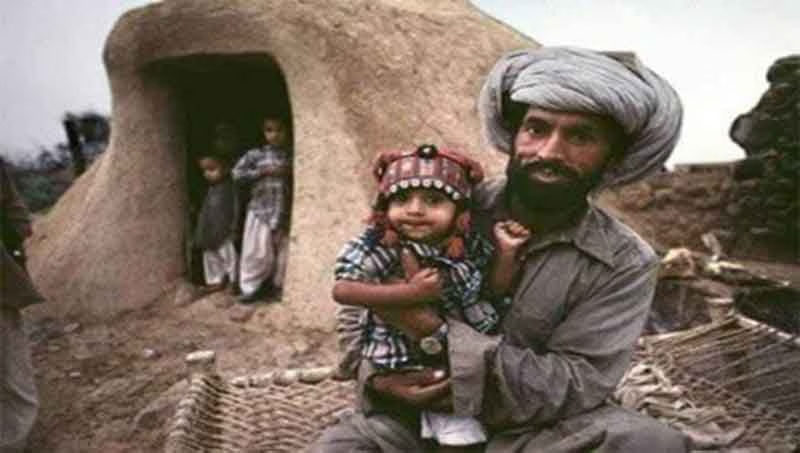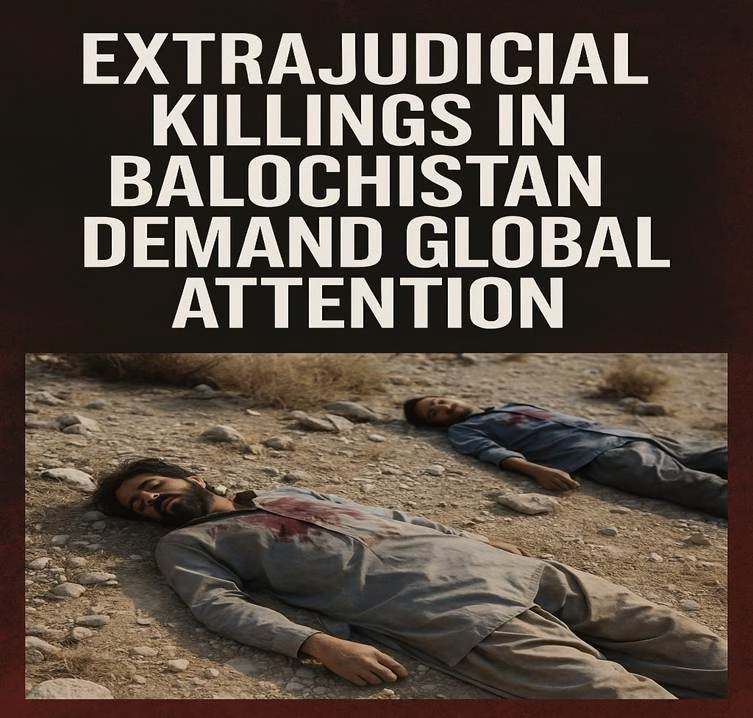
Balochistan, a region marked by its geographical and cultural diversity, is not only renowned for its natural resources and geopolitical significance but also for its deep literary and cultural heritage. The region’s literature, particularly its poetry, does not merely reflect external struggles and political viewpoints but also serves as a profound expression of social, religious, and cultural contexts. Through the verses of Baloch poets, themes of pain, resistance, dignity, and love emerge, which not only represent personal experiences but also embody the collective identity and struggles of the Baloch people.
Baloch poetry, in its romantic, political, and social dimensions, has not only voiced regional issues but has also earned worldwide recognition for its didactic and revolutionary perspectives. This article explores the multifaceted aspects of Baloch poetry, which delve deep into the cultural and political depths of the region. Through the works of prominent Baloch poets, we seek to understand the profound roots, struggles, and cultural consciousness of the Baloch society.
1. Mast Tawakali: A Journey from Love to Divinity
Mast Tawakali (1825–1892), the 19th-century Sufi poet, stands as one of the central figures in Baloch poetry. His works were not merely expressions of love but also a journey of self-discovery and devotion to the Divine. His famous song, “What is the state of my heart without Samo?” represents a quest for love, which eventually transforms into a spiritual search for God. The verse speaks of the soul’s longing, which mirrors the broader themes of divine love in Baloch culture:
“What is the state of my heart without Samo,
Love has given me a new way to go,
Now I seek the Divine, what will be,
Without Samo, nothing will be.”
Mast Tawakali’s poems carry messages not only of love but also of compassion, tolerance, and brotherhood, which continue to inspire different factions of Baloch society even today. His outlook reveals that within Baloch culture, love and devotion are not just personal pursuits but are integral to the collective spiritual identity. His perspective emphasizes that the search for the Divine is inextricably tied to the journey of love, a theme that resonates through the spiritual traditions of the Baloch people.
His works reflect the profound Sufi influences within Baloch culture, illustrating how religious traditions can intertwine with poetry to create a deeper, more holistic understanding of life. Mast Tawakali’s writings continue to serve as spiritual guides, offering a vision of compassion and divine love that persists in the contemporary Baloch worldview.
2. Mir Gul Khan Naseer: The Poetry of Revolutionary Struggle
Mir Gul Khan Naseer (1914–1983) was a prominent poet and political activist in Balochistan. His poems not only speak of social justice but also echo the themes of Baloch identity and resistance. Naseer’s work emerged as an essential movement in the face of oppression, advocating for the rights of the Baloch people. One of his famous verses, “When the world becomes tight for the poor,” continues to represent the harsh realities faced by the Baloch:
“When the world becomes tight for the poor,
Their naked bodies struggle against hunger,
Then, better than this pain and this tortured life,
Let there be war, let heads roll, let palaces burn.”
Naseer’s poems vividly portray not only the poverty and struggle of the oppressed but also the need for rebellion against systemic injustice. His works became a rallying cry for Baloch nationalism, urging the people to rise and demand their rightful place in the world. The political consciousness within his poetry made it a catalyst for social change, and it remains a guiding light for the Baloch cause.
Mir Gul Khan Naseer’s writings transcend the literary realm, serving as a blueprint for political resistance. His advocacy for Baloch rights and sovereignty remains one of the most influential aspects of his legacy. His words continue to empower those who challenge the status quo, making his poetry relevant not only for his time but also for the struggles faced by Baloch people today.
3. Mubarak Kazi: The Voice of Resistance
Mubarak Kazi (1956–2023) was the revolutionary voice of Baloch poetry, with his work reflecting the deep anguish of Baloch society and the unyielding spirit of resistance. His verses, filled with raw emotion and defiance, became a crucial part of the Baloch struggle for freedom. One of his well-known lines, “Foreign ships will arrive,” illustrates the impending threat to Baloch land and the resilience of the Baloch people:
“Foreign ships will arrive,
Polluting and poisoning my sea,
But we will stand,
We will pay any price to defend our land.”
In Kazi’s work, resistance against external forces becomes more than a political statement—it is a cultural call to arms. His poetry calls for unity, urging the Baloch people to stand firm in the face of external oppression. His poems depict a fierce determination to protect the homeland, making his legacy a cornerstone of Baloch nationalistic thought.
Kazi’s poetic rebellion captures not just the political struggle but the emotional depth of the Baloch experience. His poetry is a potent mixture of defiance and hope, embodying the spirit of resistance that continues to define Baloch identity in the modern world. His verses are a reminder that the struggle for self-determination is not just about politics but also about preserving a culture under siege.
4. Hani and Shah Murid: A Folk Tale of Love and Sacrifice
The folk tale of Hani and Shah Murid holds a cherished place in Baloch literature. This epic is not merely a love story but also a narrative of sacrifice, self-restraint, and moral virtue. Shah Murid’s renouncement of his beloved Hani in honor of his vows symbolizes a deeper ethical principle, rooted in Baloch values of honor and commitment. This tale remains emblematic of the enduring Baloch spirit, as seen in this poignant line:
“When the sea of love runs deep,
The heart is torn between desire and duty,
Love becomes a sacrifice,
A vow to uphold honor, despite the pain.”
The tale of Hani and Shah Murid embodies the ideals of self-sacrifice and moral fortitude that resonate deeply in Baloch society. It is a story that reflects not just the pain of love but also the nobility of choosing duty over desire. The narrative persists through generations, reinforcing values that are central to the Baloch ethos—values of integrity, commitment, and the relentless pursuit of what is right, even at the cost of personal happiness.
The legend has become an intrinsic part of Baloch folklore, offering both a cautionary tale and a heroic example of virtue. It continues to shape the social and moral outlook of Baloch society, offering timeless wisdom on love, sacrifice, and the human condition.
5. Ustad Noor Bakhsh: The Soul of Poetry in Music
Ustad Noor Bakhsh, a maestro of Baloch classical music, elevated Baloch poetry to new heights through his unique blending of poetry and music. His album Jingul is a testament to the power of fusion, where the rhythms of Baloch folk tunes meet the resonance of revolutionary verse. His music and poetry are inextricably linked, conveying the political, social, and emotional struggles of Baloch society. One of his compositions, “The waves of blood rise in the sea,” reflects the intensity of his creative vision:
“The waves of blood rise in the sea,
Our poetry is like the deep roar of the ocean,
Between struggle and love flows a wondrous current.”
Ustad Noor Bakhsh’s contribution to Baloch literature and culture cannot be overstated. His music was not just an artistic expression; it became a medium through which the suffering and resistance of the Baloch people were voiced. His compositions transformed the soul of Baloch poetry, turning it into a collective, cathartic experience for all who listened.
His legacy lives on as an emblem of cultural pride and political resistance. Through his fusion of poetry and music, he breathed life into the stories and struggles of the Baloch people, creating a lasting impact on both the literary and musical landscapes of Balochistan.
Conclusion
The poetry of Balochistan is not merely a literary form—it is the embodiment of the region’s soul, its suffering, its love, its struggles, and its spirituality. Through the works of its poets, we gain insight into the cultural and social heritage of the Baloch people. These poems are more than expressions of individual emotions; they are the voices of a community, calling for recognition, justice, and self-determination. The works of Baloch poets have not only illuminated their personal experiences but have also encapsulated the collective identity, struggles, and hopes of the Baloch people.
These poems do more than speak of dignity; they raise the need for societal change. The Baloch poetic movement will endure, not just as a literary heritage but as an intrinsic part of the ongoing struggle for identity, autonomy, and freedom. Baloch poetry, with its enduring themes of resistance, self-respect, and love, continues to inspire the people of Balochistan, offering them a voice amidst the silence imposed by power and oppression.
Subscribe to Our Newsletter
Get the latest CounterCurrents updates delivered straight to your inbox.
Ashish Singh has finished his Ph.D. coursework in political science from the NRU-HSE, Moscow, Russia. He has previously studied at Oslo Metropolitan University, Norway; and TISS, Mumbai.
















































